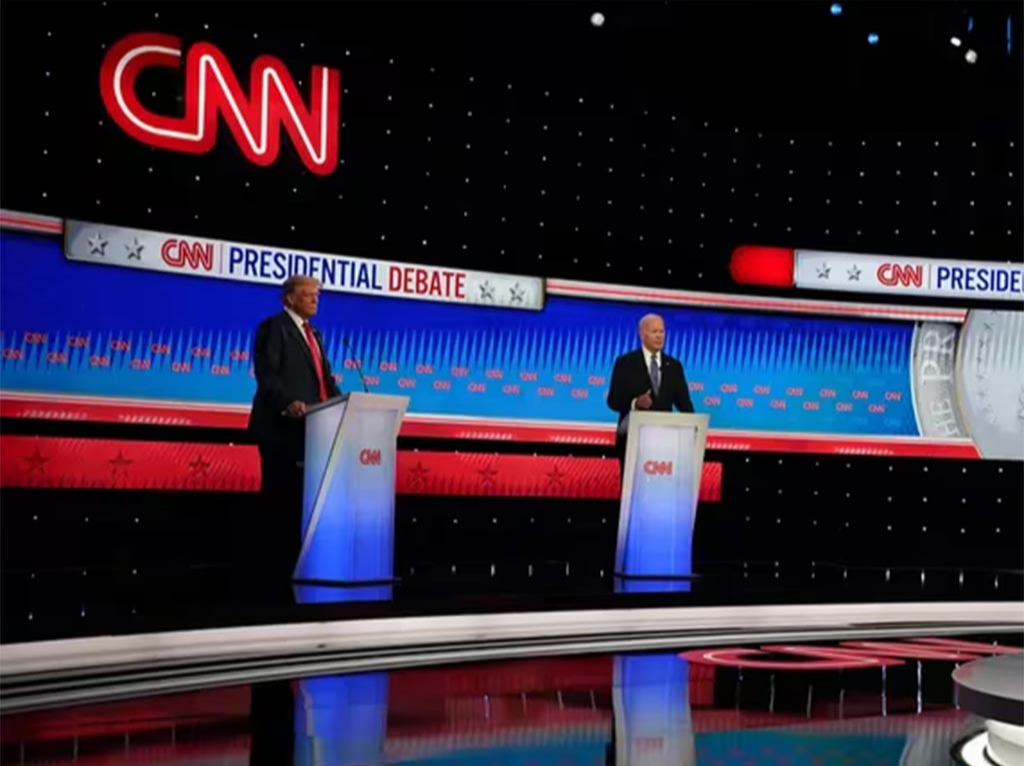
The poor performance of President Joe Biden in the first presidential debate has strengthened the chances of electoral victory of his Republican rival, former President Donald Trump
By Alfredo García Almeida*
The poor performance of President Joe Biden in the first presidential debate last week has strengthened the chances of electoral victory of his Republican rival, former President Donald Trump, while among Democrats the opinion is growing about a substitute presidential candidate for President Biden.
Within this triumphalist scenario, former President Trump's team is not wasting time. It was reported that two of his security advisors, former members of the National Security Council during his administration, are proposing to withdraw military aid to Kiev if the Ukrainian government does not initiate peace talks with Moscow.
Reuters reported that retired Lieutenant General and former National Security Advisor Keith Kellogg and former National Security Council Executive Secretary Fred Fleitz proposed to establish a ceasefire and start talks based on the front lines established at the time. The proposal has already been presented to Trump, and his assessment is positive, said one of the authors. "I'm not saying he agreed or agreed with every word, but we were pleased to receive the response we received," Fleitz stated. Trump had stated that, if he made it to the White House, he would be able to end the Ukraine war in "24 hours."
The plan Trump's advisers put to Trump would not only pressure Kiev to come to the negotiating table. Kellogg stated that, if Russia refused to agree to a temporary cessation of hostilities, the United States would send more weapons to Ukraine. The text also proposes delaying Ukraine's entry into NATO, "for an extended period, in exchange for a comprehensive and verifiable peace agreement with security guarantees." The document reflects the same ideas of an article published last April by America First Policy Institute, where experts close to Trump work.
It would not be the first time that during a presidential electoral event, one of the candidates assumes initiatives to solve an international crisis, taking advantage of the failure of his rival. In November 1980, President Jimmy Carter lost the election to Ronald Reagan, among other reasons because of the diplomatic and military disaster to rescue 52 American hostages kidnapped by Iranian revolutionaries after forcibly occupying the US embassy in Tehran, in retaliation for the asylum that the White House had granted to the dictator Mohammad Reza Pahleví, a staunch US ally.
Shortly after Reagan's victory, with the mediation of Algerian officials, negotiations began to free the captives, an effort that had obviously begun long before. On January 20, 1981, the day Reagan assumed the White House, Washington released $3 billion in frozen Iranian assets and promised to release another $5 billion in financial aid.
Minutes after Reagan's swearing-in, the hostages left Tehran on an Algerian plane, ending 444 days of captivity. The next day, former President Carter flew to West Germany to return to the U.S. with the freed hostages.
* Journalist, international analyst and contributor from Mérida, Yucatán.

